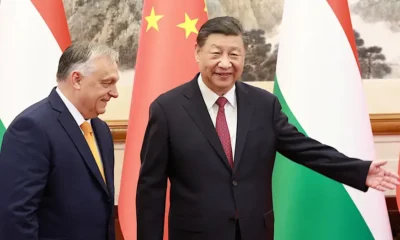Southeast Asian leaders said they had agreed on a plan with Myanmar‘s junta chief on Saturday to end the crisis in the violence-hit nation, but he did not explicitly respond to demands to halt the killing of civilian protesters.
“It’s beyond our expectation,” Malaysian Prime Minister Muhyiddin Yassin told reporters after the leaders’ meeting of the Association of Southeast Asian Nations (ASEAN) that was also attended by Myanmar’s Senior General Min Aung Hlaing.
“We tried not to accuse his side too much because we don’t care who’s causing it,” Muhyiddin added. “We just stressed that the violence must stop. For him, it’s the other side that’s causing the problems. But he agreed that violence must stop.”
Read more:
Myanmar military general to face grilling from Asian leaders over coup violence
ASEAN leaders wanted a commitment from Min Aung Hlaing to restrain his security forces, who an activist monitoring group says have killed 745 people since a mass civil disobedience movement erupted to challenge his Feb. 1 coup. They had also wanted the release of political prisoners.
“He did not reject what was put forward by me and many other colleagues,” Muhyiddin said.
According to a statement from group chair Brunei, a consensus was reached on five points – ending violence, a constructive dialog among all parties, a special ASEAN envoy to facilitate the dialog, acceptance of aid and a visit by the envoy to Myanmar. There was no mention of releasing political prisoners in the statement.


“He said he (Min Aung Hlaing) heard us, he would take the point in, which he considered helpful,” Singapore Prime Minister Lee Hsien Loong told reporters.
“He was not opposed to ASEAN playing a constructive role, or an ASEAN delegation visit, or humanitarian assistance.”
But Lee added the process had a long way to go, “because it is one thing to say you will cease violence and release political prisoners, it is another thing to get it done.”
It was not clear why Lee referred to the release of political prisoners when this was not in the consensus statement.
There was no immediate comment from Min Aung Hlaing.


A regular nighttime news bulletin on the military-run Myawaddy TV reported his attendance of the meeting and said Myanmar would closely cooperate with ASEAN on various issues, including “the political transition in Myanmar, and the process that will be implemented in the future.”
Charles Santiago, head of the ASEAN Parliamentarians for Human Rights group, called for the release of Myanmar’s political prisoners and a timeline for an end to violence.
“ASEAN must now act swiftly and set a clear timeline for Min Aung Hlaing to deliver on ending the violence, or stand ready to hold him accountable,” he said.
‘Restore Democracy’
The ASEAN gathering was the first coordinated international effort to ease the crisis in Myanmar, an impoverished country that neighbors China, India and Thailand, since the coup that overthrew Aung San Suu Kyi’s elected government. Myanmar is part of the 10-nation ASEAN, which has a policy of consensus decision-making and non-interference in the affairs of its members.


Myanmar’s parallel National Unity Government (NUG), comprised of pro-democracy figures, remnants of Suu Kyi’s ousted administration and representatives of armed ethnic groups, said it welcomed the consensus reached but the junta had to be held to its promises.
“We look forward to firm action by ASEAN to follow up its decisions and to restore our democracy,” said Dr. Sasa, spokesman for the NUG.
Read more:
Up to 3.4 million in Myanmar face hunger after military coup, United Nations says
It was unusual for the leader of a military government in Myanmar to attend an ASEAN summit – usually the country has been represented by a lower-ranked officer or a civilian.
The leaders of Indonesia, Vietnam, Singapore, Malaysia, Cambodia and Brunei were at the meeting, along with the foreign ministers of Laos, Thailand and the Philippines.
While ASEAN’s non-interference policy makes it difficult to tackle contentious issues, the body is seen by the United Nations, China and the United States as best placed to deal with the junta directly.
“We in the [@UN] Security Council eagerly await the outcome of the @ASEAN meeting on Burma, which deserves serious and immediate attention,” U.S Ambassador to the United Nations Linda Thomas-Greenfield tweeted.
— Additional reporting by Nilufar Rizki, Fanny Potkin, Agustinus Beo Da Costa, Liz Lee, A. Ananthalakshmi, Aradhana Aravindan and Panu Wongcha-um Writing by Martin Petty and Raju Gopalakrishnan
Must See
-




Entertainment
/ 7 months agoFaveSzn’s Revelation: Dating Choirmaster at 10 and Sexual Curiosity
Nigerian singer, Chidozie Ugochinyere, popularly known as FaveSzn, has revealed that she once dated...
By Flying Eze -






Europe
/ 7 months agoWhy Hungarian Prime Minister Orban visited
Two months later, the leaders of China and Hungary met again. Hungarian Prime Minister...
By Flying Eze -






News
/ 7 months agoThree dead and millions without power as Tropical Storm Beryl hits Texas
Man, 53, and woman, 74, killed by fallen trees and third person drowns amid...
By Flying Eze



